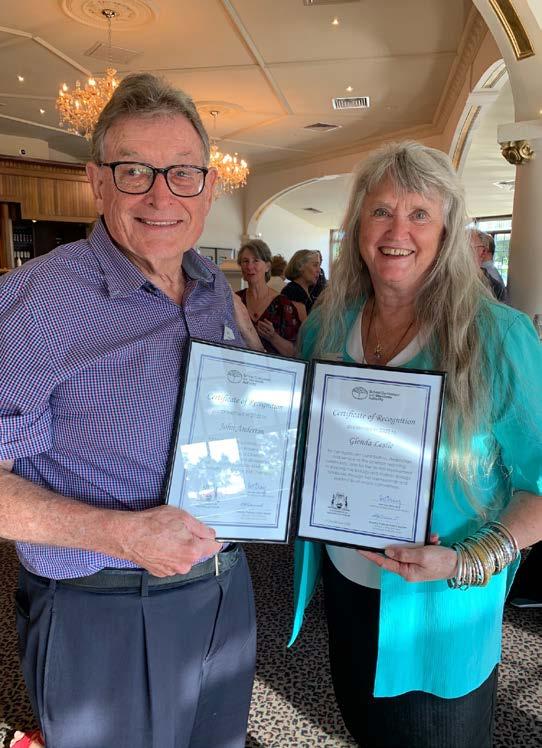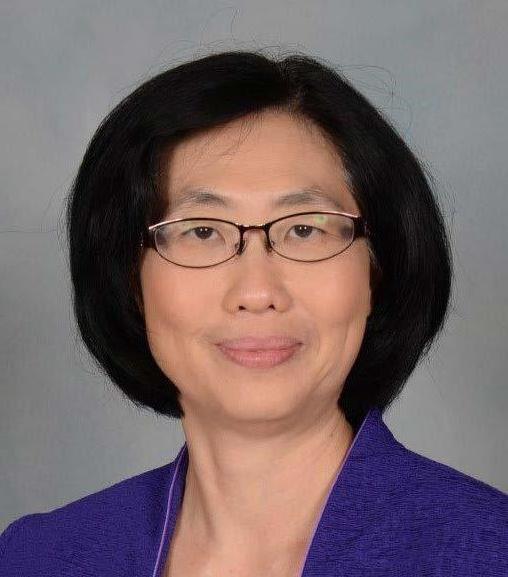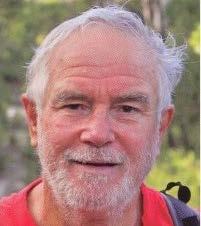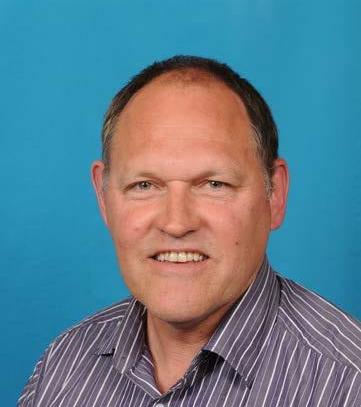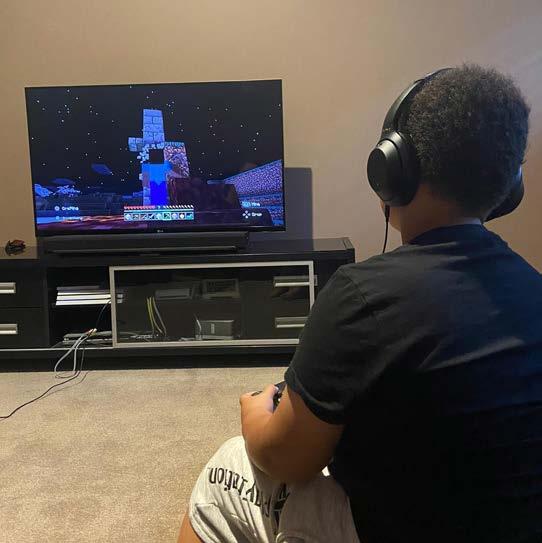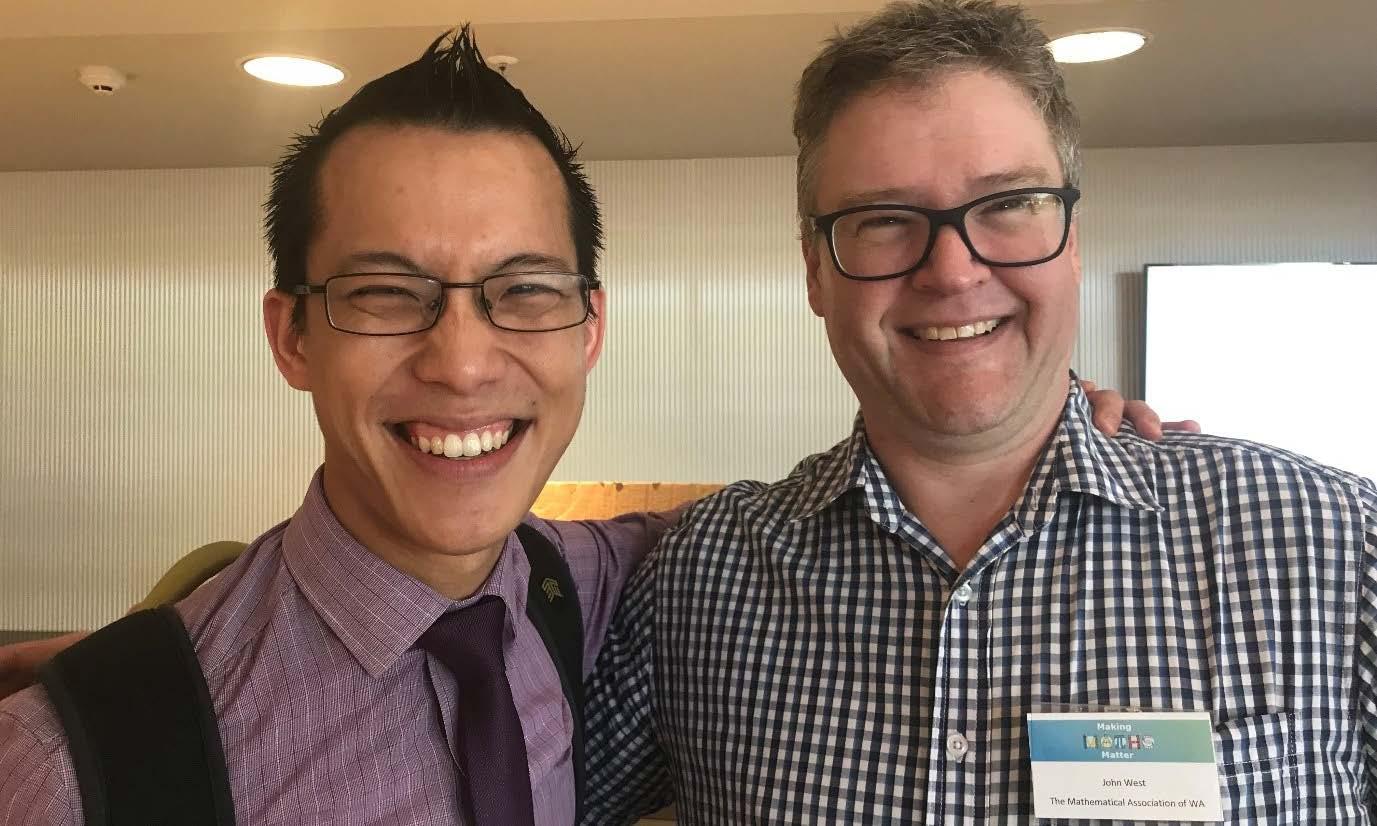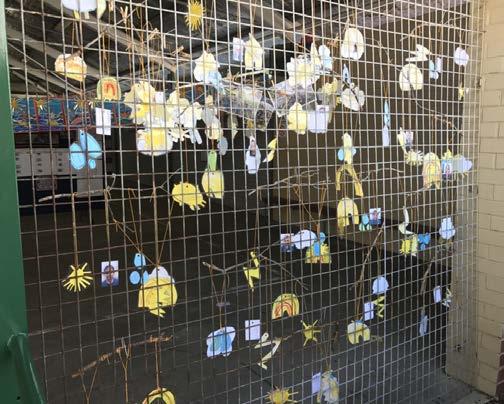
9 minute read
Climate Classrooms: Developing Science Teaching Resources
from SCIOS March 2021 Volume 61
by STAWA
Ian Macadam and Sanaa Hobeichi
The Climate Classrooms Team
Sanaa Hobeichi1,2, Ian Macadam1,2, Tahnee Burgess3 , David Holmes3, Angela Maharaj1,2 and Robyn Schofield1,4 1. Australian Research Council’s Centre of Excellence for Climate Extremes 2. Climate Change Research Centre, UNSW Sydney 3. Monash Climate Change Communication Research Hub 4. University of Melbourne
Climate Classrooms is a project that brings university sector expertise on climate science and climate change communication to bear on the challenge of bringing climate science to secondary school classes. It is a joint initiative of the Australian Research Council’s Centre of Excellence for Climate Extremes, a climate research consortium of five Australian universities that focuses on events such as heatwaves, droughts and storms, and the Monash Climate Change Communication Research Hub, which conducts social research and leads impact focused projects to build climate literacy in Australia.
One of the aims of Climate Classrooms is to raise the profile of climate science in secondary school science subjects. Despite the name “climate science”, climate science often has a much lower profile in science subjects than in some non-scientific subjects, such as geography. This can lead to a misconception among students that they do not need scientific skills to pursue climate science at university and a lack of awareness among science students that their passions and skills can be applied to climate science, to the detriment of the field.
The approach taken by Climate Classrooms is to bring secondary school educators and climate
scientists together in a workshop setting to develop draft educational resources that use examples from climate science to address objectives of the Australian curriculum. The Climate Classrooms Team then works to develop some of the content generated by the workshop into fully-fledged teaching resources aligned to the Australian curriculum, which are made freely available at https://www.monash.edu/mcccrh/projects/ climate-classrooms. The team also works with TROP ICSU (Trans-disciplinary Research Oriented Pedagogy for Improving Climate Studies and Understanding), a global project funded by the International Council of Science, to contribute to a repository of educational resources on climate change that can be used worldwide.
The annual conference of the Australian Meteorological and Oceanographic Society (AMOS) provides an ideal forum for the Climate Classrooms workshops, as it brings Australia’s climate scientists together. The inaugural Climate Classrooms workshop was held at an AMOS conference held in Fremantle in February 2020. It involved over 60 participants, mainly climate scientists from the conference and secondary school teachers from the Fremantle and Perth area. It has so far resulted in the release of three lesson plans, including a Year 11-12 Physics lesson plan on the power, energy and dynamics of wind turbines (see https://www.monash. edu/__data/assets/pdf_file/0009/2235258/Year-11and-12-Physics-Lesson-Plan-MCCCRH-The-power,energy-and-dynamics-of-wind-turbines.pdf).
The successful model of the Fremantle workshop was replicated at this year’s AMOS conference, held in February. The conference was held online due to the COVID pandemic and the associated Climate Classrooms workshop took the form of a half day event run via Zoom.
Workshop participants fell into three broad categories. Firstly, there were 16 climate scientists and knowledge brokers from the university sector, CSIRO and the Bureau of Meteorology. These ranged from PhD students to professors. Secondly, most importantly, the workshop was attended by 30 school educators The online breakout rooms in full swing; workshop participants exchange ideas on teaching resources on climate science.
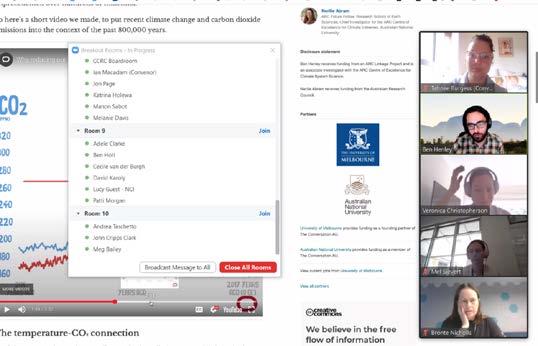
who were all passionate about enriching the teaching of the curriculum with examples from climate science. These were mainly teachers, ranging from pre-service teachers to deputy heads and assistant principals, but also included representatives of curriculum authorities. Although the online format presented some challenges, it allowed educators from across the country to take part, including science teachers from Western Australia. Finally, the workshop was joined by guests from National Computational Infrastructure (NCI) and the Australian Data Science Education Institute, who were seeking avenues to promote the use of data by school students.
Prior to the workshop, those registering were put into ten teams, each containing one or two climate scientists and two to four educators. Each team had common interests. For example, educators interested in teaching Maths to school Years 7-10 were grouped together, as were those interested in teaching Earth and Environmental Science to Years 11 and 12. The workshop itself began with a welcome by AMOS President Angela Maharaj, an experienced academic and enthusiast for climate science education in both schools and universities. Sanaa Hobeichi, a researcher and school resources developer with the Australian Research Council’s Centre of Excellence for Climate Extremes then introduced the format of the workshop. The lion’s share of the remainder of the workshop was devoted to the different teams working in different Zoom breakout rooms and focussing on different parts of the school curriculum. This involved finding links between climate science topics and specific parts of
the curriculum, considering how existing online climate science resources (e.g. videos, interactive maps, documents, data, online climate models) could be used to elucidate these and generating ideas for new educational resources.
At the end of the workshop, each team had packed a Google Drive folder full of fantastic ideas for incorporating existing online climate science resources into new educational resources to meet learning goals in the curriculum. A team comprising science teachers from Western Australia and a Knowledge Broker from Monash University drafted a Year 10 Science lesson plan that uses climate data to address misconceptions in climate science. One team member described the motivation for developing the lesson plan: “In a world in which false and misleading information can be quickly broadcast to millions of people, data literacy is a vital skillset for establishing and maintaining trust—for individuals and for societies. At the same time, data science is an engaging cross-curriculum vocation that people use to solve problems every day. We therefore developed a lesson in which students would confront, analyse and interrogate a small claim about climate change on their own terms. What would a dataset tell them about the state of global temperatures? What does it mean that different groups have come to the same conclusions about global warming?” James Goldie, Knowledge Broker, Monash University
The workshop provided a unique opportunity for secondary school educators to work closely with climate scientists and each other to identify existing climate science resources that can help integrate climate science into the Australian curriculum. It also allowed them to make sure that ideas for new educational resources on climate science aligned well with the school curriculum and could be used in practice. When asked what the best part of the workshop was, the educators highlighted the direct collaboration with practising climate scientists, getting inspiration from other school educators, the focussed teamwork in the Zoom breakout rooms and gaining an awareness of available existing climate science resources. For example, one teacher commented:
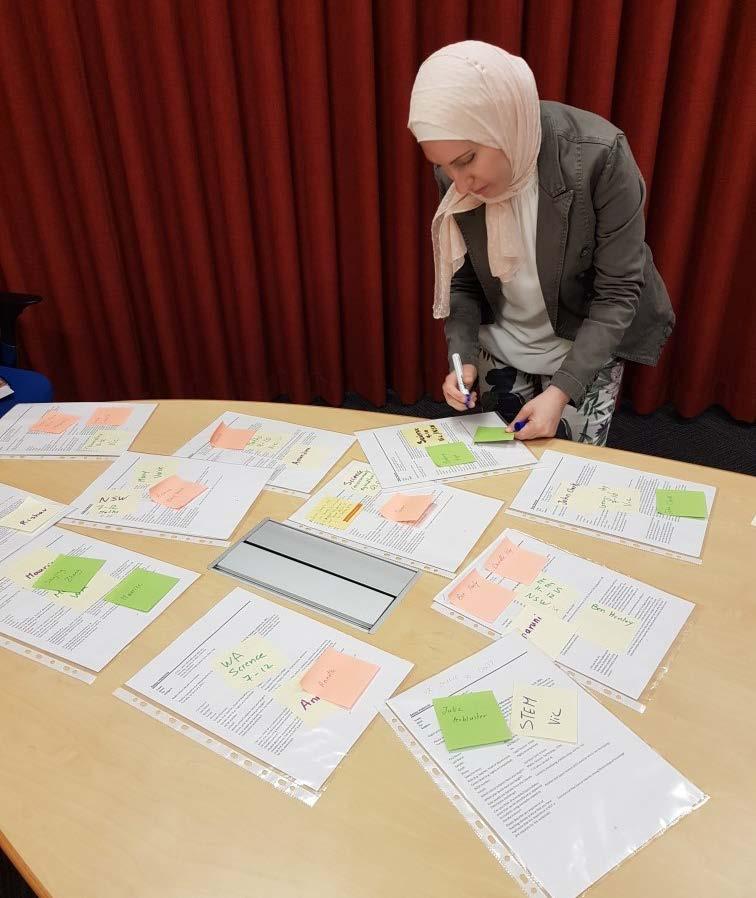
Australian Research Council’s Centre of Excellence for Climate Extremes School Resources Developer Sanaa Hobeichi working on assembling teams for the workshop. “I found the Climate Classroom workshop invaluable. As a Science teacher, I know how important it is for students to gain an understanding of both the mechanisms of climate change and implications of this on their own future. Working with other teachers as well as experts in the field allowed me not only to collaborate in making a useful lesson plan but also opened my eyes to a range of resources already available. I was able to take knowledge of these resources back to my science teaching colleagues who are already using them in lessons.” Katrina Holewa, Science Teacher, Noosa District State High School
Importantly, for many of the teachers, the workshop was endorsed by the NSW Educational Standards Authority (NESA) as officially contributing to their professional development.
Feedback from the workshop shows that the scientists who participated were passionate about climate
science education and that they were struck by the enthusiasm of the educators to bring climate science to the classroom. For example:
“One of the reasons why I am pursuing a PhD in climate science is because I want to improve the climate literacy of the general public. During the Climate Classrooms Workshop I worked with three teachers to develop a lesson plan for Year 9 Geography. We discussed effective ways to teach concepts on climate change and food security. The teachers I worked with showed a lot of enthusiasm and interest to incorporate climate science into the school curriculum and that made the experience all the more rewarding for me. I am very happy that I participated in this workshop and was able to contribute in some way.” Charuni Pathmeswaran, PhD student, UNSW
“I am passionate about teaching, because to me it represents how we nurture and guide future generations. What could be more important? It was so great to meet these equally passionate secondary teachers and to facilitate the passing on of some knowledge directly using realworld scientific data and tools. We have great mutual respect for each other’s expertise, and I hope this is a blueprint for future collaborations between professional scientists and school teachers. This is an important way for us to continue to break down the barriers which separate facts and data from deep knowledge and understanding.” Benjamin Henley, Lecturer, Monash University
The scientists clearly appreciated the opportunity to reach beyond the research community and make their science accessible to secondary school students, the decision makers and potential climate scientists of the future.
Please follow the Monash Climate Change Communication Research Hub on Twitter or Facebook to keep up to date with all things Climate Classrooms. The Climate Classrooms Team welcomes engagement with science teachers in Western Australia, including feedback, questions and ideas, and can be reached via mcccrh@monash.edu. This email can also be used to express interest in future Climate Classrooms workshops.
Acknowledgements
The workshop received generous financial support from the ARC Centre of Excellence for Climate Extremes. The success of the workshop relied on the time and enthusiasm of the participants.
About the Authors
Dr Ian Macadam leads the Knowledge Brokerage Team of the ARC Centre of Excellence for Climate Extremes, a climate research consortium of five Australian universities. He ensures that the Centre’s impact extends beyond academia, to government, businesses and schools. Ian has 20 years of experience in generating and communicating information on climate change. He has worked in research, project management and data provision roles for UNSW, NSW Government, the UK Met Office and CSIRO. Ian Macadam, Knowledge Brokerage Team Leader, ARC Centre of Excellence for Climate Extremes i.macadam@ unsw.edu.au
Dr Sanaa Hobeichi is a climate scientist and knowledge broker at CLEX. She is passionate about enhancing climate science education among secondary-school students. She works with secondary-school teachers, climate experts, and climate science communication specialists on developing teaching resources that integrate climate science into the Australian Curriculum. Sanaa has more than 10 years of experience in teaching Maths in primary and secondary schools, and the International Baccalaureate Mathematics and Theory of Knowledge. Sanaa Hobeichi, Postdoctoral Research Associate and Knowledge Broker, ARC Centre of Excellence for Climate Extremes (CLEX) s.hobeichi@unsw.edu.au

